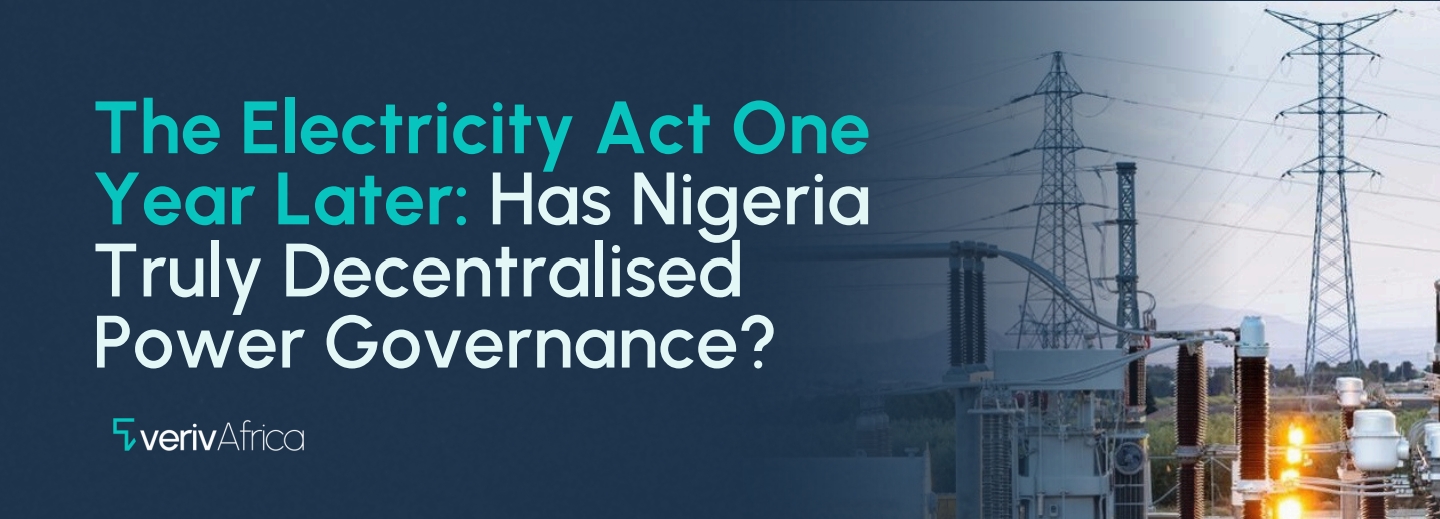Nigeria's practice of federalism aims to balance national authority with subnational autonomy, while ensuring that governance yields to the people's aspirations. Central to this framework is the local governance system, a vital conduit for participatory democracy that empowers citizens to shape grassroots development. The suspension of Rivers State Governor, Siminalayi Fubara, his deputy, and the state legislature on March 18, 2025, by President Bola Tinubu for an initial period of six months and the appointment of Vice Admiral Ibok-Ette Ibas (Rtd) as sole administrator disrupts this delicate equilibrium.
This unprecedented intervention raises questions about the resilience of subnational governance and its ripple effects on local institutions. This development also presents a critical inflection point for Nigeria’s democratic federalism and the integrity of its local governance structures. Against this backdrop, this insight examines the impact of Fubara's suspension on current efforts at strengthening local governance systems and its broader implications for Nigeria's local governance outlook. It explores how elite appetite, constitutional ambiguities, and federal overreach negatively impact grassroots democracy. It underscores the need to safeguard local governance to sustain Nigeria's democratic promise to its people.
The Shadow Play Impacting Local Governance
Elite capture and political godfatherism are endemic to Nigeria's subnational politics, where influential elites manipulate democratic processes to perpetuate control, stifling the autonomy of elected officials and undermining grassroots development. This pattern, observed since Nigeria's return to democracy in 1999, was notably exemplified in Anambra State in 2003, when Governor Chris Ngige was abducted and faced impeachment attempts allegedly orchestrated by his political godfather, Chris Uba, to control state resources.
Fubara’s recent suspension emanating from a feud with his predecessor, Nyesom Wike, reaffirms this corrosive trend. It reflects how godfathers seek post-election dominance to secure resources and maintain political structures for long-term personal gain. Weak internal party democracy, characterised by opaque candidate selection and elite-driven primaries, enables such control, as seen in the process leading to the 2023 elections in Rivers state. This elite capture disrupted Fubara's initiatives, as disputes among Wike-loyal lawmakers impacted the 2025 budget presentation, potentially delaying public services needed by citizens. For example, Fubara allegedly suspended the ₦195 billion Port Harcourt Ring Road project in October 2023, a Wike-initiated plan, halting critical infrastructure for over a year. Though recently restarted, this 18-month pause underscores how godfatherism disrupts state interventions.
Blurred Lines: How Legal Grey Zones Undermine Local Governance
Despite amendments, the 1999 constitution of Nigeria harbours ambiguities that enable the arbitrary removal of state governors and lawmakers, destabilising subnational accountability. Section 305, granting the President emergency powers, lacks clear thresholds, sparking debates over whether President Tinubu could suspend Governor Siminalayi Fubara. The Nigerian Bar Association (NBA) condemned the president’s action as unconstitutional, arguing that the emergency was a political manoeuvre on questionable grounds. The constitution's ambiguous impeachment provisions, particularly the subjective definition of misconduct under Section 188(11), enable state assemblies to target governors for differing interests, as seen in the 2006 impeachment of Rashidi Ladoja in Oyo State. Despite his reinstatement by the Supreme Court, such flaws destabilise subnational governance, eroding trust and weakening the democratic promise of federalism.
The suspension of elected lawmakers further disrupts legislative checks and balances, weakening democratic oversight. The appointment of Vice Admiral Ibok-Ete Ibas as sole administrator compounds this loophole. Administrators cannot make laws, but they can issue regulations, creating unaccountable governance overlaps. Ibas's appointment of local Government Area (LGA) administrators, against court orders, further harms local governance, weakening true federalism by overriding elected local structures. Due to the introduced legal and administrative complexities, these moves would disrupt local governance. Constitutional ambiguities paralyse grassroots accountability, funding, and project continuity by undermining executive-legislative oversight.
Why Autonomy Remains a Mirage
Local government autonomy is crucial in Nigeria's federal system, as it fosters grassroots governance and democratic participation. However, elite power struggles at various levels often reduce local governments to mere bargaining chips. In Rivers State, Wike-loyal lawmakers' defection from the Peoples Democratic Party (PDP) to the All Progressives Congress (APC) in December 2023 was a political manoeuvre designed to secure political control and disrupt administrative and budgetary processes. For example, the Supreme Court's February 2025 ruling, affirming Martin Amaewhule's Assembly, barred funds to Rivers while stalling local government allocations. In the October 2024 local government elections, Governor Fubara's attempt to manipulate the party system by using the Action Peoples Party (APP) to counter Wike's influence exacerbated electoral chaos. The Supreme Court invalidated the results due to violations of the Electoral Act, including improper voter registration. This decision further eroded local government autonomy by delaying the formation of elected councils. These state-level power interplays depict how local governments suffer from democratic interference, which delays development and weakens democratic accountability.
How Weak Oversight Enables Strongmen in the States
The complicity of federal actors in politically motivated removals undermines the principle of federalism. President Tinubu's declaration of a state of emergency in Rivers State, endorsed by a compliant National Assembly, reflects a failure to safeguard subnational democracy. Also, the appointment of Ibas as sole administrator bypassed Rivers State's elected institutions, setting a precedent for federal overreach. Historically, such federal dominance echoes the 1962 Western region emergency, where Prime Minister Balewa's intervention destabilised regional governance. It also reflects President Obasanjo's 2004 Plateau and 2006 Ekiti emergencies, which were criticised for vague security claims that eroded state autonomy. In Rivers, despite President Tinubu's mediation meeting, Wike's unchecked godfatherism has fuelled elite-driven disruptions, reinforcing perceptions of double standards in upholding local independence. This failure of national institutions to safeguard subnational democracy threatens local governance nationwide, as federal actors prioritise elite interests over constitutional mandates, leaving states and local governments vulnerable to centralised dominance and erosion of democratic accountability.
The Quiet Exit of Citizens from Civic Life
Decades of elite corruption, electoral manipulation, and unaccountable governance have eroded trust between Nigeria's political class and citizens, weakening confidence in local institutions and disempowering communities. Governor Fubara’s suspension, alongside that of his deputy and the State Assembly, further weakened this shaky trust, exemplifying an elite disregard for democratic mandates.
Remarks from key leaders and organisations highlight its impact on Nigeria's democratic system. Former President Goodluck Jonathan warned that such actions "paint Nigeria in a bad light," thereby undermining the country's democratic tenets. The Northern Elders Forum (NEF) decried that the intervention disregards the spirit of democracy, justice, and public order. This systemic erosion of trust may further depress Nigeria's already low voter turnout, potentially discouraging young Nigerians from pursuing governance roles, as elite actions stifle community initiatives and local accountability.
Restoring Power to Where It Matters Most
The removal of Rivers State Governor Siminalayi Fubara revealed Nigeria's governance weaknesses, where elite control misuses resources, unclear constitutional rules allow unjust suspensions, state disputes weaken local independence, federal actions ignore democratic choices, and citizen distrust grows. These failures harm local governance, a crucial component of federalism, necessitating urgent changes to rebuild public trust and improve Nigeria's democracy. The ongoing Supreme Court cases concerning Fubara’s suspension may define the scope of emergency powers or deepen public distrust. This could further reduce voter participation, contributing to Nigeria's low turnout. Nigeria must follow court rulings, revise the constitution to limit and clarify emergency powers, and support civil society in combating godfatherism through fair Local Government Area (LGA) elections and community initiatives to strengthen local governance and federalism. Tackling these issues is vital to restoring local accountability and encouraging civic involvement. By striking a balance between stability and democratic values, Nigeria can strengthen local institutions, ensuring federalism succeeds through active communities and promoting national unity for a robust democratic future.
References
Ata-Agboni, J., Okolo, O., Benjamin, F., Adama, I., Suleiman, R., Asiru, A. and Omachi, A. (2023) 'Federalism and Local Government System in Nigeria: A Critical Assessment', Journal of Good Governance and Sustainable Development in Africa (JGGSDA), 7(4), pp. 15–27. Available at: https://journals.rcmss.com/index.php/jggsda/article/download/781/694/1449.
Ameh, S.O., Anande, T.J. and Nnam, E. (2025) 'Political Godfatherism as a Catalyst for Corruption and Impunity in Nigeria', International Journal of Multidisciplinary and Current Educational Research (IJMCER), 7(2). Available at: https://www.ijmcer.com/wp-content/uploads/2025/03/IJMCER_G072048058.pdf (Accessed: April 27 2025).










